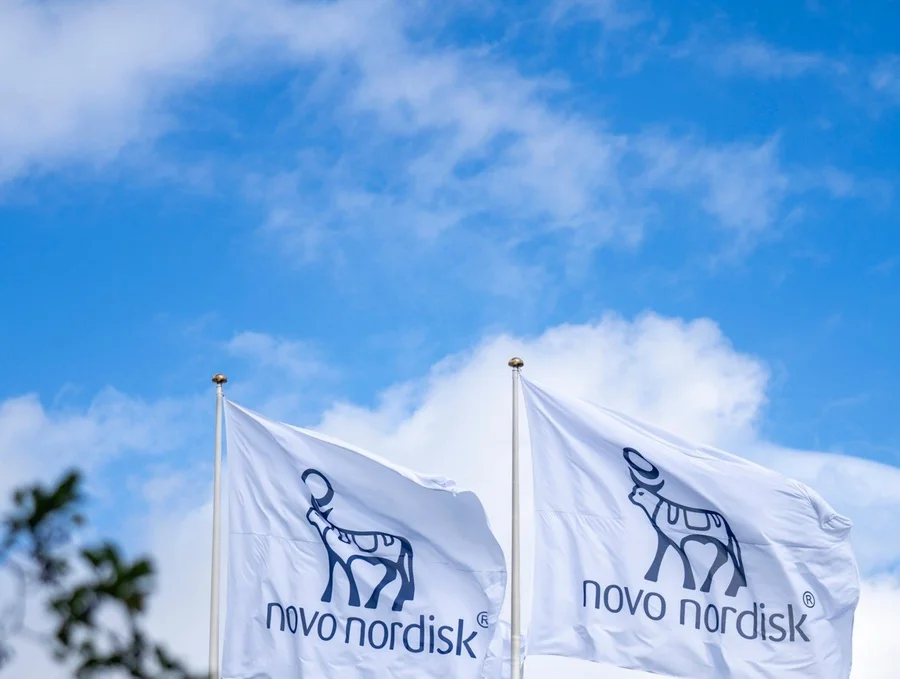Novo Nordisk’s journey as Europe’s most valuable pharmaceutical company has led it to pioneer the next generation of weight-loss treatments.
Pharma giant Novo Nordisk is working on its ‘next generation’ weight-loss drug, CagriSema, which it believes will pioneer GLP-1 treatments. Glucagon-like peptide-1 (GLP-1) is a hormone which plays a vital role in glucose metabolism and appetite regulation.
For over a century, Danish pharma Novo Nordisk has been working to prevent and cure chronic diseases. Now, it is the most valuable company in Europe. Novo Nordisk’s treatments benefit millions of people who live with diabetes or obesity, as well as those with rare blood and endocrine diseases. The company also produces 50% of the world’s insulin supply, including over 600m insulin pens and an estimated 36m people use the company’s diabetes care products.
Novo Nordisk faces investor scepticism amid weight loss pill challenges
Investor confidence in Novo Nordisk’s capacity to satisfy product demand has diminished, compounded by disappointing results from an experimental weight loss pill announced in September. As a result, Novo Nordisk’s shares have lagged behind those of its primary competitor in the weight-loss sector, Eli Lilly.
Novo Nordisk expects data on the drug CagriSema to prove that the drug reduces weight by 25% in just over a year. This in comparison to:
- 16% from Novo Nordisk’s Wegovy
- Up to 22.5% by Eli Lilly’s rival Mounjaro
However, the results are also expected to show that CagriSema only works when administered alongside a patients’ healthy diet and adequate amounts of exercise and sleep.
“CagriSema is really important for us. It’s a next-generation product and it has the potential to be best in class,” said CEO Lars Fruergaard Jørgensen.
CagriSema targets obesity and diabetes
CagriSema is a novel combination therapy that mixes:
- Semaglutide, the active component in Novo Nordisk’s Ozempic and Wegovy
- Cagrilintide, an amylin-based compound.
This weekly injectable medication combines the GLP-1 mimicking effects of semaglutide with the properties of the pancreatic hormone amylin.
The development of CagriSema has broader implications for the pharmaceutical industry, as other companies are also working on amylin-based treatments.
These drugs, like GLP-1 agonists, aim to decrease food intake and improve blood glucose regulation.
If CagriSema is successful, it could increase confidence in other companies developing amylin-based therapies. For instance, Zealand Pharma, a Danish company working on an amylin-only drug, has seen its market value double this year due to growing enthusiasm for this drug class.
Novo Nordisk is currently conducting clinical trials for CagriSema in both obesity and type-2 diabetes treatment. The company is also running a head-to-head trial comparing CagriSema with Eli Lilly’s Mounjaro. These efforts are part of Novo Nordisk’s unprecedented investment in research and development to maintain its competitive edge.
Novo Nordisk CEO advocates for affordable healthcare
Over his 33 years at the company CEO Lars Fruergaard Jørgensen, leads the company through its various scientific breakthroughs, expanding access to medicine and working to cure diseases.
Lars was invited to represent Novo Nordisk at a Senate hearing in the US, where he explained the pricing differences between medicine for sale in the US compared to other locations.
“I reaffirmed our focus on providing innovation, support and care for the people we serve,” he said. “Importantly, I also expressed my frustration that even though we’re working hard to make our treatments more affordable, patients aren’t seeing the reduction in prices, all too often.”
Lars amplified the need for real change and practical solutions for people living with chronic and misunderstood diseases, such as diabetes and obesity.



